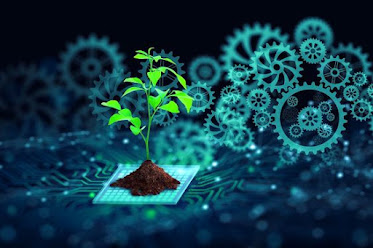Here are some key areas and examples of green technology:
Renewable Energy: This involves the generation of energy from renewable sources such as solar, wind, hydro, geothermal, and biomass. Solar panels, wind turbines, and hydropower plants are examples of green technologies that produce clean and sustainable energy.
Energy Efficiency: Green technology focuses on improving energy efficiency in buildings, appliances, and industrial processes. Energy-efficient lighting systems, smart thermostats, and energy management systems help reduce energy consumption and greenhouse gas emissions.
Electric Transportation: Electric vehicles (EVs) are becoming increasingly popular as a sustainable alternative to traditional fossil fuel-powered vehicles. EVs produce zero tailpipe emissions and contribute to reducing air pollution and dependence on fossil fuels.
Sustainable Agriculture: Green technology in agriculture aims to promote sustainable farming practices, reduce the use of harmful chemicals, and enhance resource efficiency. Examples include precision farming, organic farming techniques, and the use of biodegradable packaging materials.
Waste Management: Green technology plays a crucial role in waste management by promoting recycling, composting, and waste-to-energy conversion. Advanced recycling systems, anaerobic digesters, and waste-to-energy plants help reduce landfill waste and generate clean energy.
Green Building: Sustainable construction practices focus on designing energy-efficient buildings that utilize renewable energy sources, efficient insulation, and smart systems for heating, cooling, and lighting. Green buildings reduce energy consumption and carbon emissions.
Water and Air Purification: Green technologies are employed to purify and conserve water resources and improve air quality. Water filtration systems, wastewater treatment plants, and air pollution control technologies help mitigate environmental pollution.
Sustainable Materials: The development of eco-friendly materials, such as biodegradable plastics, sustainable textiles, and recycled building materials, reduces the environmental impact of manufacturing processes.
Smart Grids: These intelligent electrical grids optimize the generation, distribution, and consumption of electricity. Smart grids incorporate renewable energy sources, energy storage systems, and advanced monitoring and control mechanisms for efficient power management.
Environmental Monitoring: Green technology includes the use of sensors, remote sensing, and data analysis to monitor and manage environmental conditions. This helps in early detection of pollution, conservation of ecosystems, and implementation of effective environmental management strategies.
These are just a few examples of the broad range of green technologies being developed and implemented to create a more sustainable and environmentally friendly future. The field continues to evolve with advancements in science and technology, and the widespread adoption of green technology is essential for addressing global environmental challenges and achieving a sustainable society.
#GreenTechnology #CleanTechnology #SustainableTechnology #RenewableEnergy #EnergyEfficiency #ElectricTransportation #SustainableAgriculture #WasteManagement #GreenBuilding #WaterPurification #AirPurification #SustainableMaterials #SmartGrids #EnvironmentalMonitoring





No comments:
Post a Comment